Maryland 2018 - More of Day 5
/This was the first part of my last day in Maryland. I stopped along parts of the C & O Canal on my way... 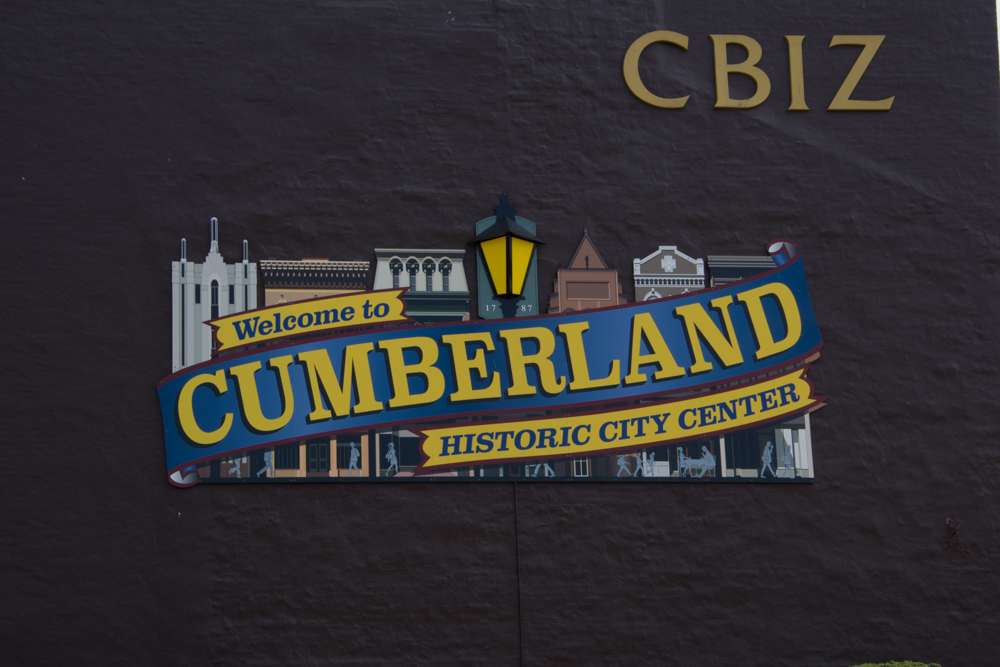 ...to Cumberland where I finally found parking away from the touristy city center and I walked ...
...to Cumberland where I finally found parking away from the touristy city center and I walked ...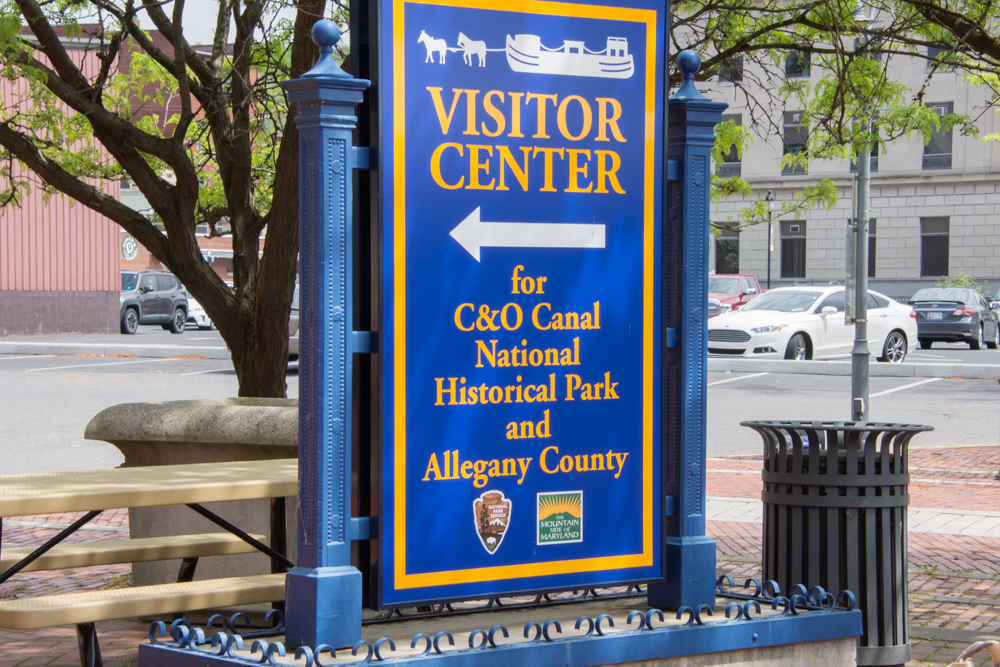 ...to the Visitor Center. At the Visitor Center I asked about walking on the towpath. The person there told me that I would find more attractive areas away from town but while I was in town I might want to walk do a self-guided tour of the Victorian Historic District on Washington Street. So I headed out of the Center and started my walk, first seeing a few more of points of interest near the river.
...to the Visitor Center. At the Visitor Center I asked about walking on the towpath. The person there told me that I would find more attractive areas away from town but while I was in town I might want to walk do a self-guided tour of the Victorian Historic District on Washington Street. So I headed out of the Center and started my walk, first seeing a few more of points of interest near the river. 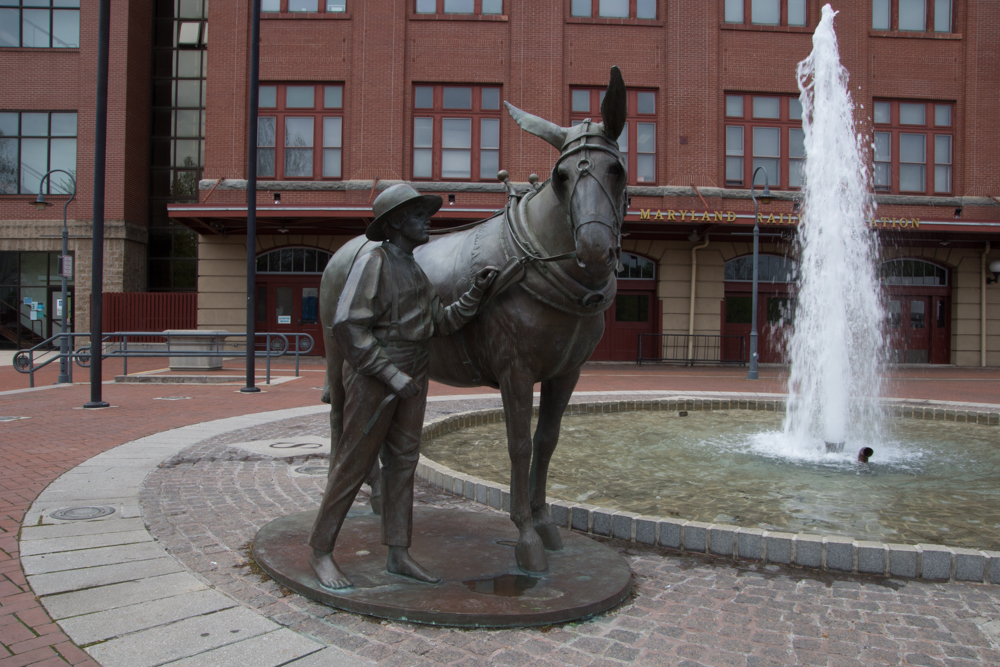 Mules played a big role in the history of the canal. In the last post I mentioned 3000 mules on the canal. Each boat had a small stable for the mules at one end and the living quarters for the boat operator and his family at the other. The rest was cargo (lots of coal). Two mules worked on the towpath while the other two were in the stable.
Mules played a big role in the history of the canal. In the last post I mentioned 3000 mules on the canal. Each boat had a small stable for the mules at one end and the living quarters for the boat operator and his family at the other. The rest was cargo (lots of coal). Two mules worked on the towpath while the other two were in the stable.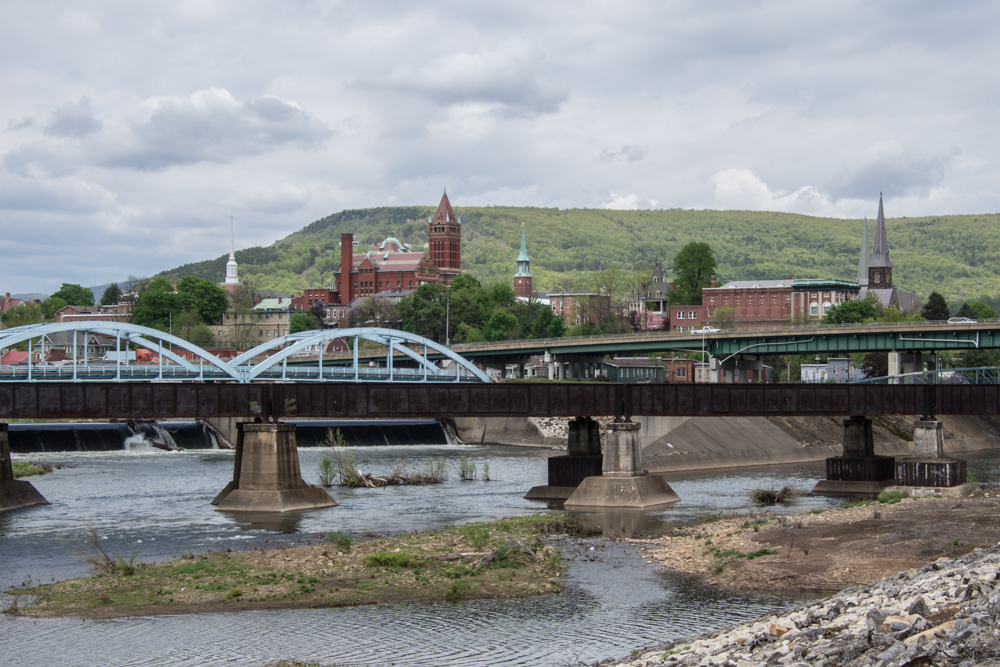 The beginning of the canal system contrasts with modern transportation routes and the old buildings of the city.
The beginning of the canal system contrasts with modern transportation routes and the old buildings of the city. 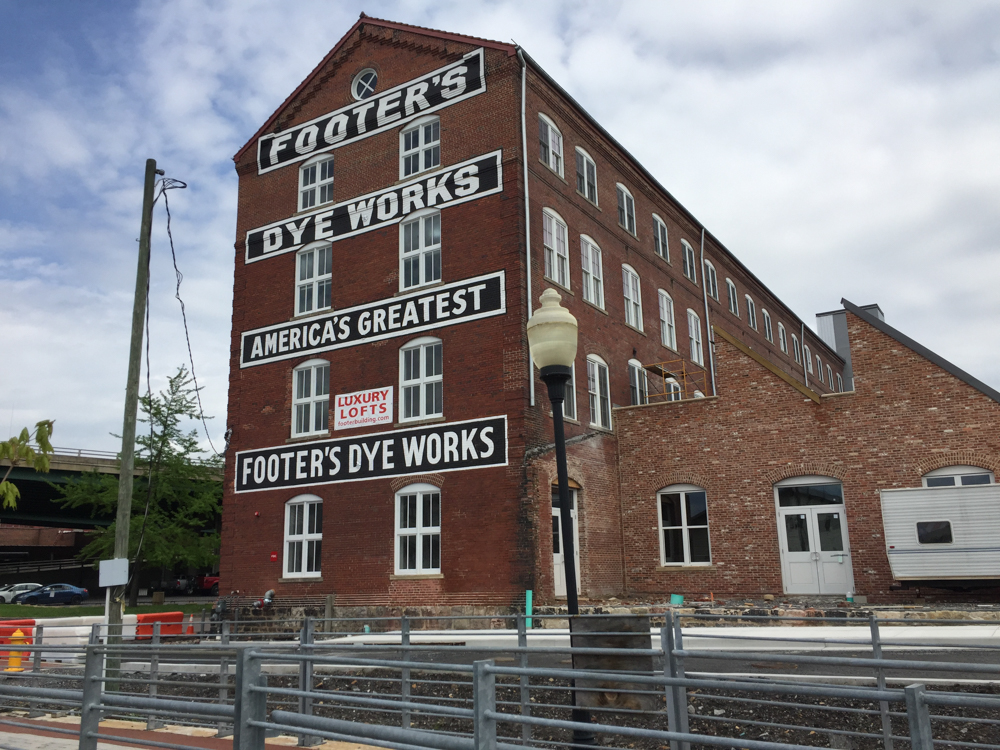 This is the last remaining structure of what was once the largest cleaning and dyeing establishment in the U.S. and a major employer in Cumberland. I think that it is now apartments.
This is the last remaining structure of what was once the largest cleaning and dyeing establishment in the U.S. and a major employer in Cumberland. I think that it is now apartments.
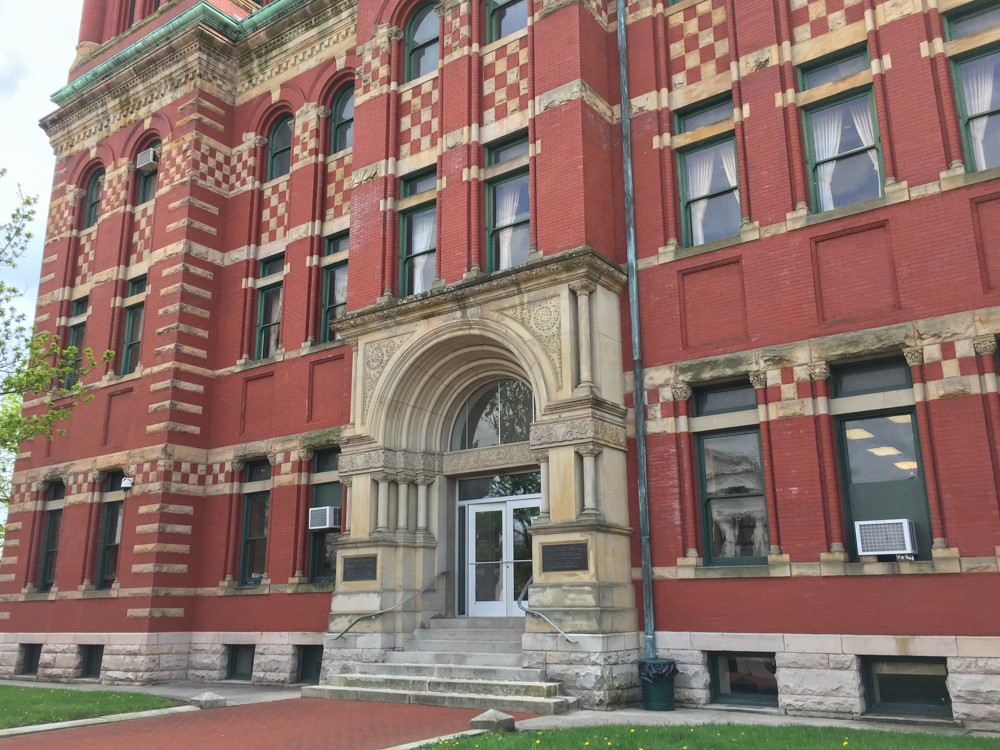
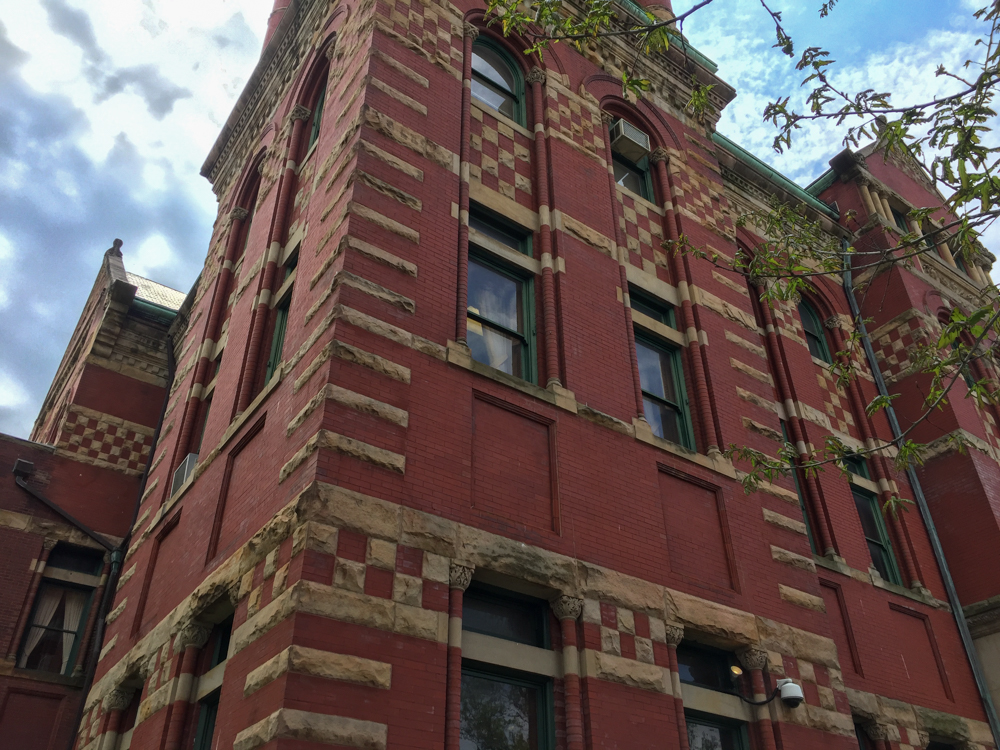 This is the Allegany County Court House build in 1893-94.
This is the Allegany County Court House build in 1893-94. 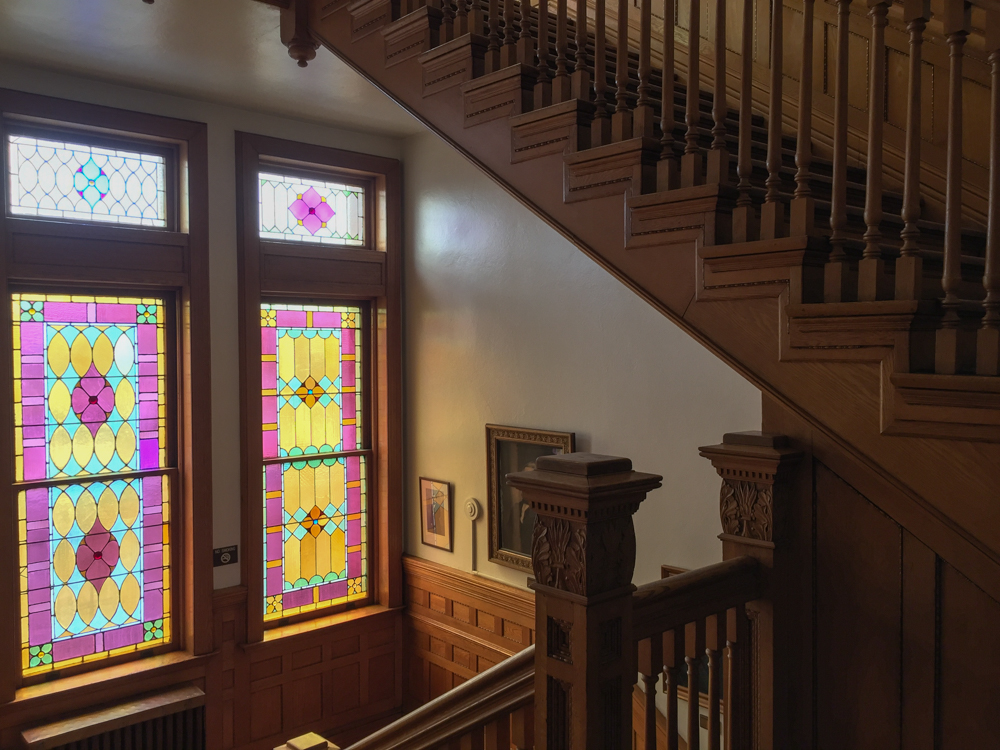 Here is a view inside the Courthouse.
Here is a view inside the Courthouse.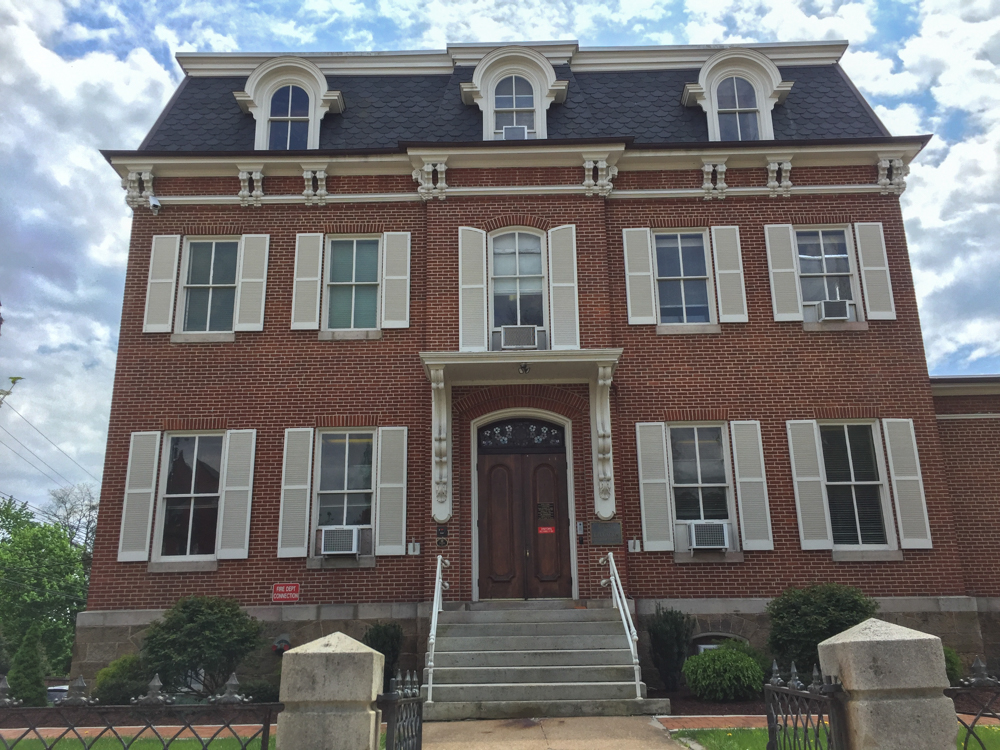 This building has housed the Board of Education since 1936 but was built in the 1860's for William Walsh who served two terms in the House of Representatives.
This building has housed the Board of Education since 1936 but was built in the 1860's for William Walsh who served two terms in the House of Representatives. 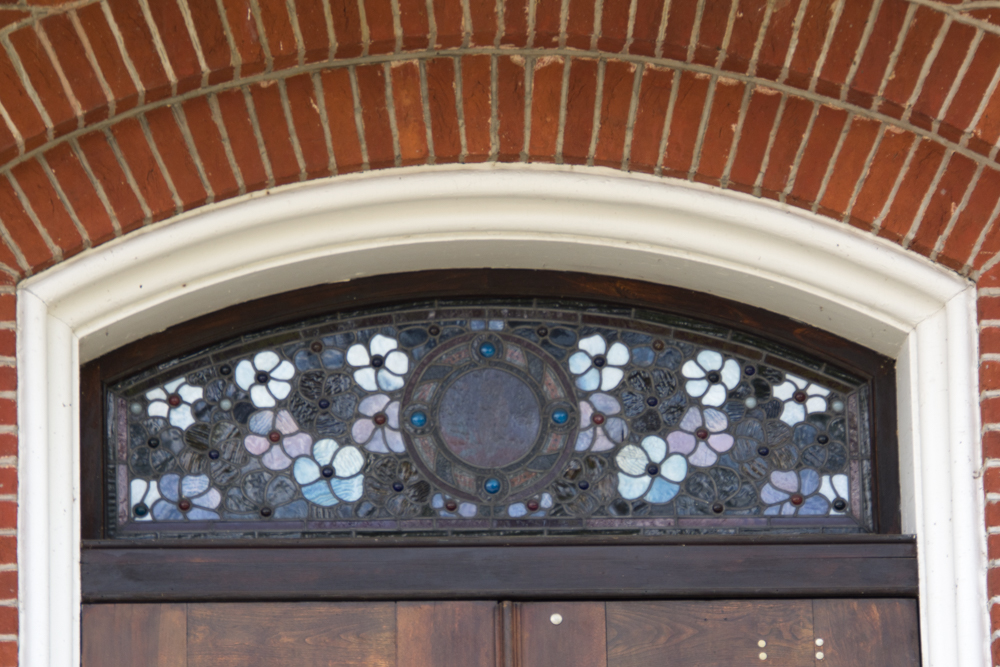 This is the stained glass above the door.
This is the stained glass above the door. 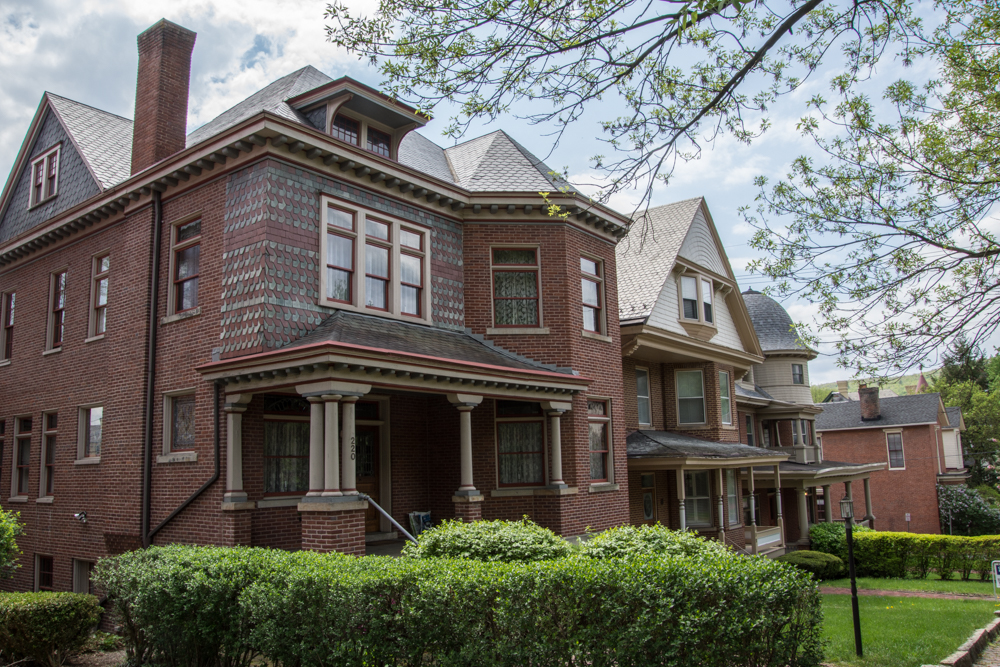 The rest of these photos are in no particular order, but I walked several blocks and over forty of the houses are listed in the Self-Guided Walk Into History. The house above was built for an attorney in the late 1890's.
The rest of these photos are in no particular order, but I walked several blocks and over forty of the houses are listed in the Self-Guided Walk Into History. The house above was built for an attorney in the late 1890's.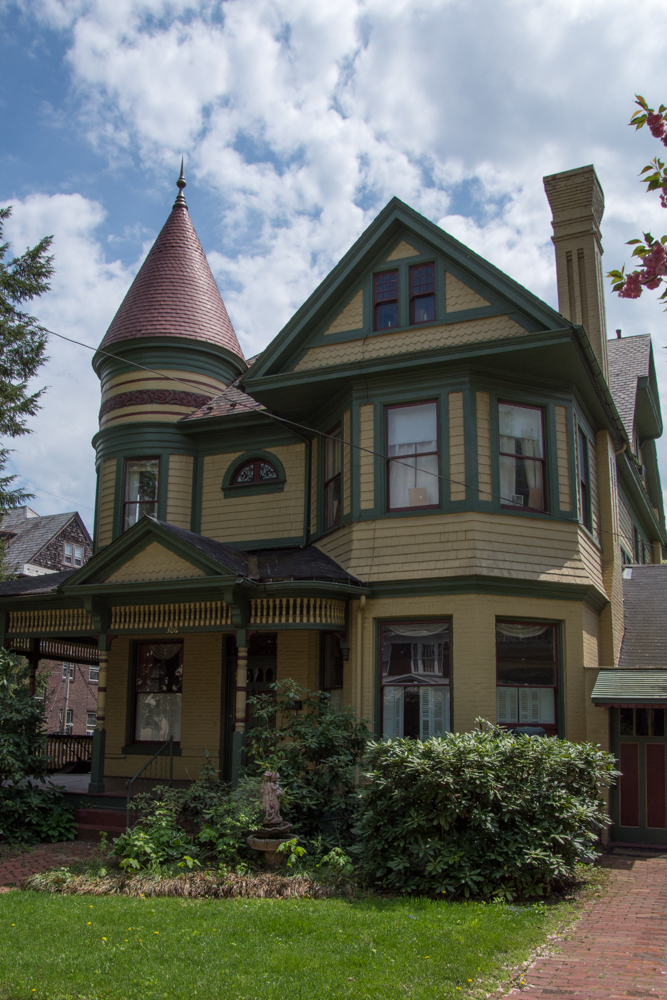 Built around 1890.
Built around 1890.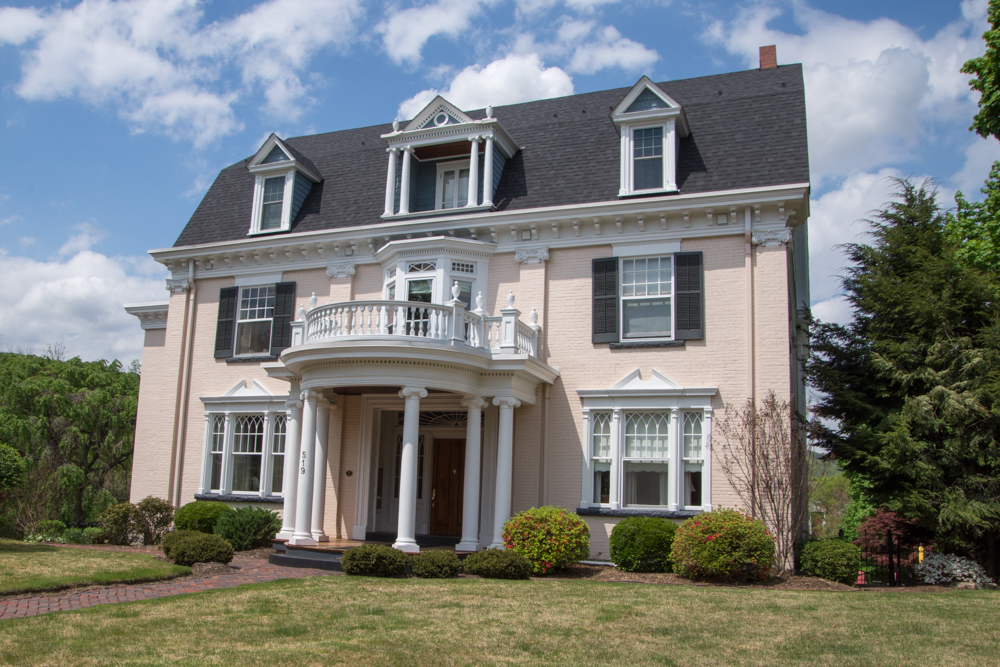 This one was built in 1890.
This one was built in 1890.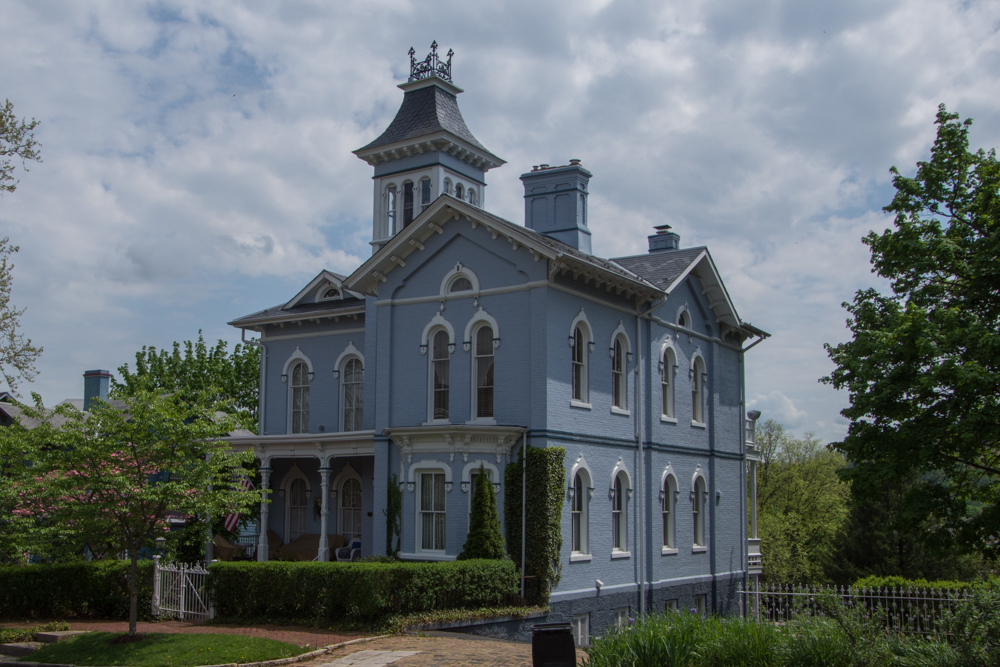 Some of these houses weren't listed on the Tour Guide or I just don't remember which they are.
Some of these houses weren't listed on the Tour Guide or I just don't remember which they are.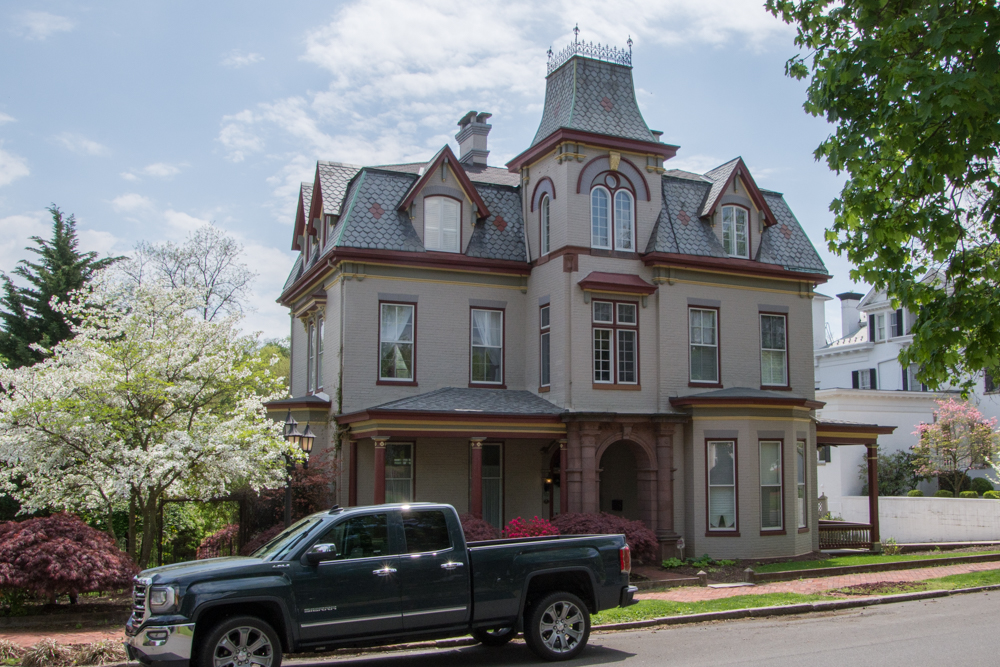
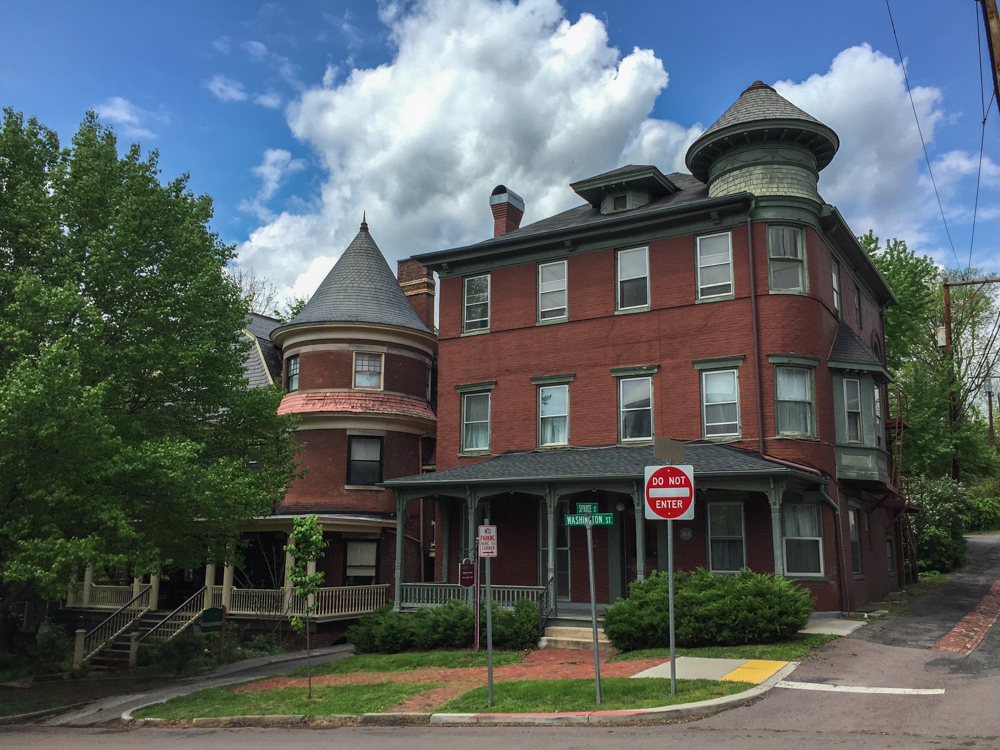
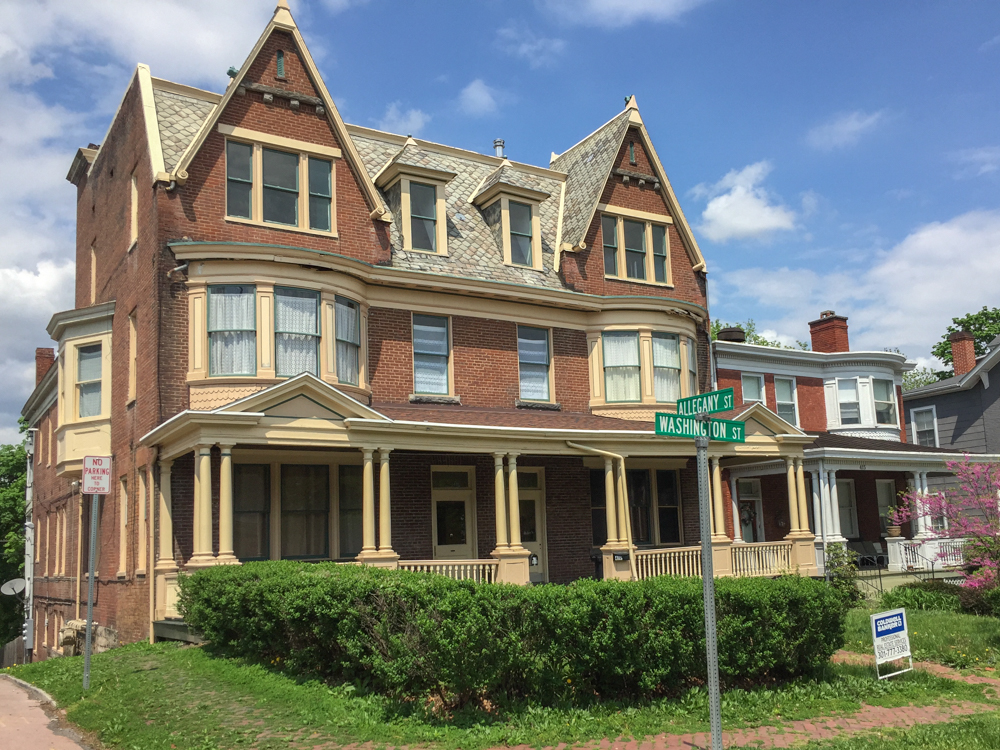 1880.
1880.
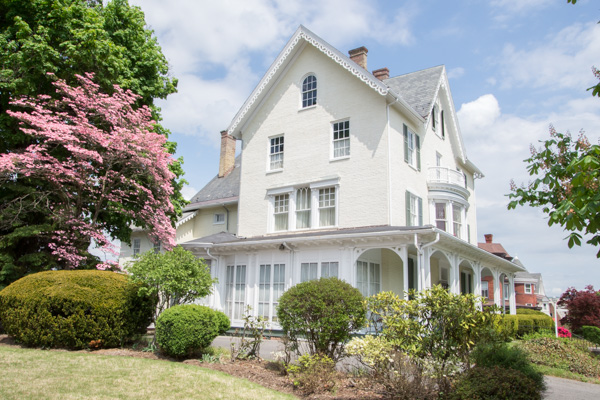 Built in 1855, now the Woman's Civic Club House.
Built in 1855, now the Woman's Civic Club House.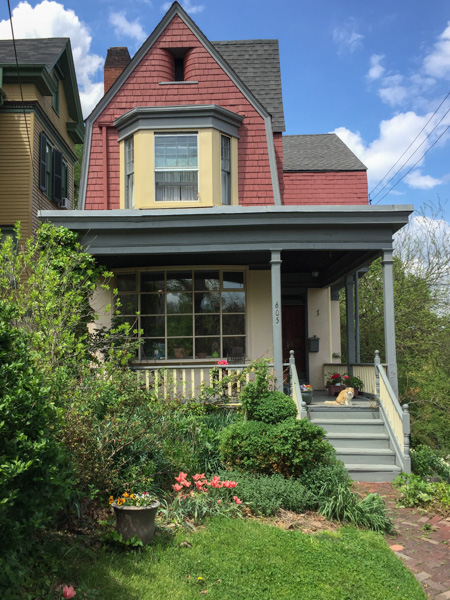 This house was built in the early 1880's and known as "The Little House because is is the smallest house on Washington Street. The brochure says that this house "features a beautifully curved staircase and a Colonial Revival fireplace with a bullrush design in cast iron".
This house was built in the early 1880's and known as "The Little House because is is the smallest house on Washington Street. The brochure says that this house "features a beautifully curved staircase and a Colonial Revival fireplace with a bullrush design in cast iron".
Wouldn't you love to see inside all of these houses?

